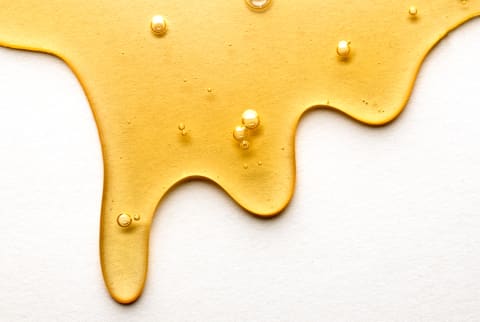Advertisement
3 Ways To Pick The Best Honey So You Get The Most Health Benefits



Honey adds a touch of sweetness to really anything you want. This silky and slightly sticky delight is also antibacterial, anti-inflammatory, and is an antioxidant, which may seem like a lot of antis, but we’re far from anti-honey.
To get all its superhuman benefits, though, you need to pick the right honey, so we decided to consult a honey expert to get the tips and tricks for figuring out which one is legit. Suzy Scherr, chef and author of the new book The Honey Companion, tells us precisely what to look for and what to avoid when shopping around for this treat.
Opt for raw and unfiltered honey
Honey is no different from most foods: When buying it, aim to avoid processed options. When honey is processed it's heated, which can destroy its beneficial elements and make it less nutritious, says Scherr. Look for labels that say raw to avoid missing out on critical nutrients.
Another essential label to look for is unfiltered. “Filtering honey removes a lot of pollen, and bee pollen is nutritious,” said Scherr. It has also been noted for various other health benefits1. If you’ve ever held your honey up to the light and noticed little particles in the honey, there’s a chance it’s unfiltered, and that’s some nutritious leftovers that you don’t want to miss. So remember: raw and unfiltered!
Disregard "organic" on the label
In many cases, choosing organic food is a great, reliable option. In the case of honey, it doesn’t matter if you opt for organic or not, because bees fly many miles and it's far too difficult to determine which flowers were visited.
“You would have to ensure all flowers in the bee-foraging area were pesticide-free,” said Scherr, and this is extremely difficult to confirm. It’s likely that organic honey may be a little more pricey than non-organic honey, so knowing this little tip could shave a little off the price tag.
Investigate the color
Honey has different colors and distinct tastes based on which flowers the bees visited and the time of the year. Honey in the fall is usually darker and has a bolder flavor and honey in the spring is often lighter and has a milder taste. Both are delicious, and it’s worth trying out both to see what you like. While in the store or at the farmers market, check out the color of the honey and choose based on the flavor you want.
Besides the labels, you won’t be able to tell by the color which flowers the bees went to so experiment with different types of honey. Scherr’s favorites? Wildflower and chestnut honey.
While buying honey can be confusing, we hope these tips help you get the most nutrients and flavor for your money. Here’s to a sweet spring!